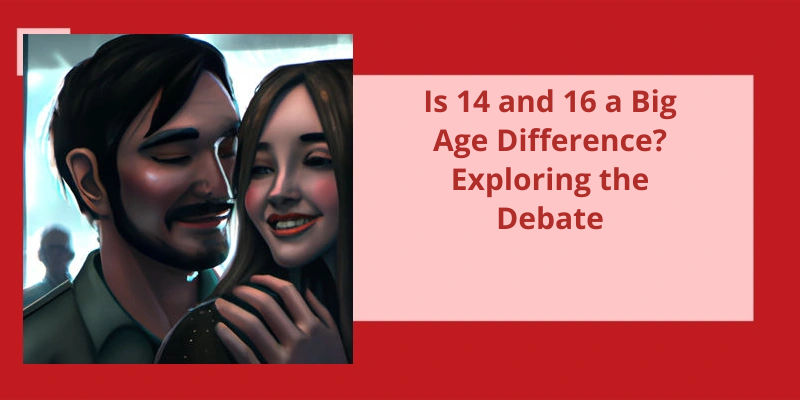Human emotions and relationships are complex and can be both uplifting and challenging at the same time. While some couples may find it easy to express love and affection towards each other, others may struggle to do so. If you're in a relationship where your boyfriend doesn't say "I love you" back to you, it can be concerning and may lead to questions about the state of your relationship. This situation can be difficult to navigate and may leave you wondering if there’s something wrong with your relationship or if your partner is emotionally unavailable. It's important to understand that there can be many reasons why someone may struggle to express their emotions, and it's not always a reflection on you or your relationship. In this article, we'll explore some of the potential reasons why your partner may not be saying "I love you" back and how to navigate this situation.
Is It Normal for Someone to Not Say I Love You Back?
There are many reasons why your partner may not say “I love you” back, and it’s important to understand that it’s not necessarily a reflection of their feelings towards you. Sometimes, people are simply not ready to express their love verbally. They may feel vulnerable or unsure about how to respond, especially if they havent processed their own emotions yet.
Additionally, some people show love in different ways. It’s important to pay attention to their behavior and not just focus on their words.
Ultimately, it’s important to remember that love is a complex emotion and everyone experiences it differently. There’s no “right” way to express love, and the timing of when someone says “I love you” can vary greatly. If you feel comfortable expressing your love, it’s okay to do so! But don’t force your partner to reciprocate if theyre not ready. Give them time and space to process their emotions, and continue to show them love in ways that feel natural to you both.
Not hearing “I love you” back can be frustrating and confusing, but it’s important to approach the situation with empathy and understanding. Be patient with your partner, and don’t make assumptions about their feelings. Above all, prioritize open communication and trust in your relationship. With time and effort, you can build a strong and loving connection with your partner.
It’s not uncommon for people to have trouble expressing their emotions, particularly when it comes to saying those three little words. While some may see it as a red flag when a partner can’t say “I love you,” it’s important to remember that everyone communicates differently. Verbal inhibition doesn’t necessarily mean someone is cold or calloused. Rather, it’s just another facet of human emotion and behavior.
Is It a Red Flag to Not Say I Love You?
Some individuals find it challenging to express their emotions openly and find it hard to articulate their thoughts and feelings aloud. Saying “I love you” requires vulnerability and courage. Unfortunately, some people may associate this with weakness or fear rejection, so they opt to keep their feelings to themselves. It doesn’t mean that they’re unaffectionate or don’t care deeply about their partner. It’s just that they’ve a different communication style that doesn’t include verbal expressions of endearment.
Moreover, some people may not have been raised in an environment where saying “I love you” was the norm. They may not have received much physical affection or heard their parents vocalize their feelings for each other. Therefore, it’s reasonable for them to struggle with expressing these sentiments themselves.
Similarly, cultural background and upbringing can also affect how people express their emotions. Some cultures, for instance, discourage public displays of affection or verbal expressions of love. As such, individuals from these cultures may not feel as compelled to say “I love you” as those from other cultures.
It’s also worth noting that some people prefer to show their love through actions rather than words. They may cook their partners favorite meal, buy them thoughtful gifts, or take them on a surprise date, among other things. These acts of love can be just as meaningful to the recipient as hearing the words “I love you.”
Not saying “I love you” isn’t automatically a red flag in a relationship. Of course, it’s essential to communicate your feelings, but it’s equally important to respect your partners communication style and preferences. As long as both individuals feel loved and appreciated in their own unique way, the absence of verbal expressions of love isn’t something to be overly concerned about.
The Importance of Non-Verbal Communication in Relationships
Non-verbal communication is a crucial aspect of relationships, as human beings communicate not only through words but also through body language, facial expressions, tone of voice and other non-verbal cues. Being aware of and effectively communicating through these non-verbal signals can help build trust, understanding, and healthy relationships.
It’s important to remember that everyone expresses their feelings differently. While some people say “I love you” frequently, others may show their love through actions rather than words. However, if you feel like you need to hear those three little words, it’s okay to bring it up to your partner. But how can you do it without pressuring them? Let’s explore some tips below.
What to Do if He Never Says I Love You?
Instead, she recommends starting with a conversation about how each partner expresses love and affection. “Some people are very verbal and need to hear it all the time, whereas others show their love through actions,” Leckie explains. By understanding each others love languages, you can find different ways to show and receive affection that work for both of you.
It’s also important to consider whether your partners actions align with their words. “Love is more than just a feeling or saying I love you,” says therapist Kiaundra Jackson. “It’s about how you treat someone and how you show up in the relationship.”. If your partner consistently shows that they care for you and prioritize your needs, they may simply express their love in different ways.
However, if you feel like your partners lack of verbal affirmation is a significant issue for you, it’s worth bringing up. Communication is key in any relationship, and it’s important to be honest about your feelings and needs. “It’s important to express yourself in a non-judgmental way and to ask for what you need,” Jackson advises. “Use I statements instead of starting with you statements, and focus on your feelings rather than making accusations.”
When discussing the issue, it’s also important to consider your partners perspective. “Understand that your partner may have a different love language or cultural background where expressing love verbally isnt as common,” Leckie explains. “Try to understand where theyre coming from and have an open discussion about finding a compromise that works for both of you.”
Ultimately, if your partner never says “I love you” and it’s a significant issue for you, you may need to reassess whether this relationship is fulfilling your emotional needs. “It’s important to know your worth and what you need in a relationship,” Jackson says. “If youre not receiving what you need, it may be time to have a conversation about where the relationship is going.”. Remember that you deserve to be with someone who loves and appreciates you in the ways that you need.
How to Identify and Communicate Your Own Love Language
- Pay attention to your own preferences in how you express love
- Consider how you feel most loved by others
- Reflect on past relationships and what made you feel loved
- Take the love language quiz to identify your primary love language
- Communicate your love language to your partner or loved ones
- Be open to learning and understanding your loved one’s love language
- Practice expressing love in ways that are meaningful to your loved one
It’s not unusual for couples to take their time before making the commitment to say “I love you.” However, if a significant amount of time has passed and neither partner has expressed their love for each other, it may be cause for concern. As psychotherapist Dr. Carla Manly puts it, this might signal some issues that need to be addressed. Let’s take a closer look at why this could be problematic and what couples can do to navigate this situation.
How Long Is Too Long to Be in a Relationship Without Saying I Love You?
Relationships can be tricky to navigate, especially when it comes to expressing ones deepest emotions. The phrase “I love you” carries immense weight and can be nerve-wracking to say or hear for some individuals. There’s no set timeline for when this phrase should be uttered, as every relationship is unique. However, if a significant amount of time has passed and one partner still hasn’t expressed their love, it may be a cause for concern.
Experts suggest that if a couple is in a serious relationship, with both partners invested emotionally, and a significant amount of time has passed without the “I love you” declaration, it may be a sign that something is amiss. This could be indicative of a lack of emotional vulnerability, avoidance of commitment, or a fundamental incompatibility between the partners.
It’s important to remember that love isn’t a one-size-fits-all experience. Each person expresses and experiences it differently. Some individuals may be hesitant to express love due to past traumas or fear of vulnerability. Others may simply need more time to feel comfortable enough to convey their emotions.
This conversation may reveal a deeper understanding of each others emotional needs and provide clarity about the state of the relationship.
The Impact of Cultural and Societal Norms on Expressing Love: How Societal Expectations and Cultural Traditions Can Influence the Way Individuals Express Love.
This topic explores how our cultural and societal expectations can affect how we show love to one another. It looks at how traditions and norms can shape our beliefs and behaviors when it comes to love and relationships.
Conclusion
However, it's important to remember that everyone expresses their love differently and at their own pace. Some people may take longer to feel comfortable saying "I love you" than others. Communication is key in any relationship, so it's important to have an open and honest conversation with your partner about how you both feel. Don't make assumptions or jump to conclusions – take the time to really understand each other's perspectives and emotions. What matters is that you both feel loved, valued, and respected in each other's company. Keep the lines of communication open, be patient, and focus on building a strong, healthy, and fulfilling relationship.






